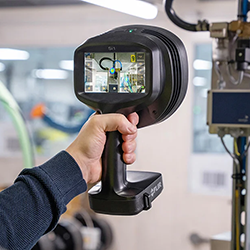Save Your Manufacturing Business by Giving Employees Ownership Opportunities

Although the manufacturing sector remains crucial to the economy, it is no longer the thriving industry of decades past. Besides the negative effects felt by owners and employees associated with particular companies, manufacturing downturns can cause adverse consequences for the country's economy.
Professionals know how important it is to plan for whatever unexpected circumstances may be on the horizon. Trade tensions, new regulatory requirements and difficulties finding qualified, reliable workers can all make it exceptionally difficult for manufacturers to remain profitable. Succeeding means staying flexible and responding to changes in the marketplace, often being open to doing things differently.
Statistics indicate that the manufacturing industry recently experienced a slump. Data collected in September 2019 shows that the manufacturing activity index fell to its lowest point since June 2009. If your business has been walloped by the various challenges in the sector, converting the company to an employee stock ownership plan (ESOP) could be a way forward.
What Is an ESOP?
An ESOP is a retirement plan that provides employees with the opportunity to have an ownership stake in an enterprise, primarily by investing in the employer's stock. The company funds the ESOP with tax-deductible contributions in the form of cash or stock.
An employee stock ownership plan operates via a trust. The contributions made by the employer get distributed to workers annually, as long as an employee participates in the trust. When a person reaches the point of retirement, they receive the accumulated amount of those yearly additions.
An ESOP Could Be Ideal if You Want to Retire
Although an ESOP gives workers benefits to avail of when they leave the workforce, the arrangement may be particularly enticing if you are the founder of a manufacturing company and want to retire soon. This plan allows selling your company to the employees and leaving the workforce in its current form. Plus, you can remain at the company for as long as desired.
ESOPs Can Increase Transparency
In many companies — manufacturing and otherwise — most of the employees have little to no access to the businesses' financial statistics. When Chris Grace, president and CEO of Arkansas-based Grace Manufacturing, was pondering whether to turn the company into an ESOP, he read a book called "The Great Game of Business" by Jack Stack.
This read advocates being upfront with employees about the company's bookkeeping and providing them with financial education, among numerous other components. Now that Grace Manufacturing is an ESOP, workers get together in weekly huddles, look at the company's financial data and predict the month's revenue.
Having access to that kind of information helps employees stay informed and recognize that each person plays a critical role in the company's success. Workers often remain in the dark until major successes or failures occur at a company. However, the example provided by Grace Manufacturing proves that an ESOP can boost financial education and literacy, plus help workers stay abreast of company performance.
An ESOP May Result in Higher Stock Prices
Another potential benefit associated with turning a manufacturing business into an ESOP is an increase in stock prices, an outcome noticed by NewAge Industries, a plastic tubing manufacturer based in Pennsylvania. The business established the ESOP in 2006. More recently, a 2018 article mentioned that the company's stock price has grown by more than 850% since that time.
Although the company also offers employees a 401(k) savings plan, many employees of NewAge Industries reported that the ESOP performance has already surpassed what their traditional retirement plan has done. This plan, then, can help people feel they are still benefiting, even if wages temporarily fall or they don't receive anticipated pay increases.
ESOPs Can Promote Employee Loyalty and Motivation
Data published in 2019 revealed that 89% of U.S. manufacturers struggle to fill their open positions. No magic, quick fix exists for that issue, but if a company is an ESOP, that may help. Jobseekers tend to look carefully at ads for open positions and determine how the perks offered stack up to what other companies give.
When an ESOP-owned company does well, all the workers reap the rewards. It should be evident to you, then, why this plan may naturally make employees want to stay associated with the business until they leave the workforce.
KI Furniture, a manufacturer based in Wisconsin, enjoyed both immediate and long-term benefits once it became an ESOP in 2011. For example, employees became more engaged and started using hotlines to give feedback about their experiences at work. Managers said workers also paid more attention to details and started showing more curiosity about the company, particularly its finances.
KI Furniture employees reportedly stay with the company for an average of 13 years, more than triple than what's typical for the manufacturing sector overall.
An ESOP Is Well Worth Consideration
Converting a manufacturing company into an ESOP is not the right solution in every case. However, if you want the chance to help a faltering enterprise get a new lease on life — complete with employees who are ready to see the business succeed for years to come — don't overlook the possibilities of an employee stock ownership plan.
Comments (0)
This post does not have any comments. Be the first to leave a comment below.
Featured Product

